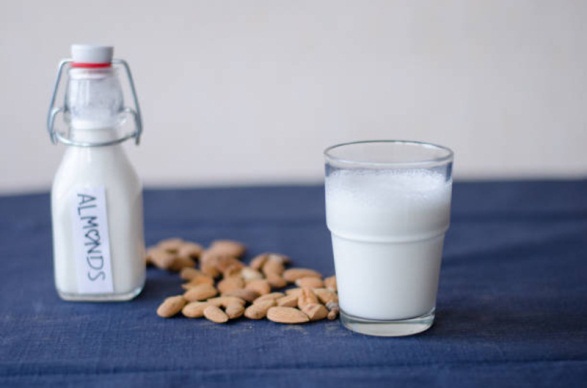Embrace the Creaminess: Top Dairy Foods with Low Lactose Content
Nov 07, 2023 By Madison Evans
Are you someone who loves the creamy, luscious texture of dairy products like cheese and yogurt, but have trouble digesting lactose? No need to worry--there are plenty of dairy foods that contain low levels of lactose, so you can still enjoy the taste without worrying about stomach upset. From milk alternatives like oat milk to cultured cream cheeses, this list will provide you with delicious and nutritious options that pack a flavorful punch with very little lactose. Read on to learn which items to add into your pantry (or refrigerator) for some much needed variety!
Overview of lactose intolerance
Before we dive into the list, let's briefly discuss lactose intolerance. This condition occurs when a person is unable to fully digest lactose, which is a type of sugar found in dairy products. Lactose intolerance can cause symptoms such as bloating, gas, abdominal pain, and diarrhea. While some people may completely avoid dairy due to these symptoms, others may opt for low lactose options.
Importance of finding low-lactose dairy options
Dairy products are an important source of essential nutrients such as calcium, vitamin D, and protein. Cutting out dairy completely can potentially lead to deficiencies in these nutrients, which is why finding low-lactose options can be beneficial for those who struggle with lactose intolerance.
Top 10 low-lactose dairy foods

Now let's get to the good stuff--the dairy foods that are low in lactose but still provide all the deliciousness and nutrition you crave. These options may vary depending on your location, as some may be more readily available in certain regions.
1. Oat Milk
Oat milk has become a popular alternative to traditional dairy milk, thanks to its creamy texture and nutty flavor. It is made by blending soaked oats with water and then straining out the solids. Oat milk contains very little lactose, making it a great option for those who are sensitive. Plus, it's also a good source of fiber and essential nutrients.
2. Lactose-Free Milk
If you still want to enjoy traditional cow's milk, opt for the lactose-free version. This type of milk has the lactose already broken down, making it easier to digest for those with lactose intolerance. It also contains all the same nutrients as regular milk.
3. Greek Yogurt
Greek yogurt is a strained version of regular yogurt, making it thicker and creamier. Due to the straining process, much of the lactose is removed, making it a low-lactose option for those who may have trouble with traditional yogurt. It also packs a powerful protein punch.
4. Hard Cheeses
Hard cheeses like cheddar, parmesan, and Swiss contain very little lactose due to the aging process. As cheese ages, bacteria break down the lactose, making it easier to digest for those with lactose intolerance. These cheeses are also high in calcium and protein.
5. Lactose-Free Cottage Cheese
Similar to lactose-free milk, cottage cheese can also be found in a version with the lactose already broken down. This is a great option for those who love the texture and taste of cottage cheese but have trouble digesting it.
6. Cultured Cream Cheese
Traditional cream cheese may be difficult to digest for some, but cultured cream cheese is an alternative that contains live bacteria cultures that help break down the lactose. It has a tangier taste compared to regular cream cheese, making it a delicious option for bagels and spreads.
7. Kefir
Kefir is a fermented milk drink that contains beneficial bacteria and yeast. The fermentation process breaks down much of the lactose, making it easier to digest for those with lactose intolerance. It also provides probiotics which can help improve gut health.
8. Non-Dairy Yogurts
For those who prefer to avoid dairy altogether, there are many non-dairy yogurt options available on the market today. These can be made from coconut milk, almond milk, or soy milk and often contain added probiotics for gut health.
9. Almond Milk Ice Cream

We couldn't end this list without mentioning a dairy-free dessert option! Almond milk ice cream is a delicious and low-lactose alternative to traditional dairy ice cream. It comes in various flavors and can be found at most grocery stores.
10. Lactose-Free Butter
Yes, even butter can contain lactose. But fear not, there are now lactose-free versions of butter available for those who have trouble digesting it. This is a great option for baking and cooking.
Benefits of Including Low-Lactose Dairy in Your Diet
Health benefits of dairy foods
- Calcium for strong bones and teeth
- Vitamin D for bone health and immune system support
- Protein for muscle growth and repair
- Other essential nutrients such as potassium, phosphorus, and vitamin B12
Importance of maintaining a balanced diet
Including a variety of dairy foods in your diet can help ensure you are receiving all the essential nutrients needed for optimal health. Additionally, finding low-lactose options allows those with lactose intolerance to still enjoy the taste and benefits of dairy without discomfort.
Conclusion
While lactose intolerance can be challenging, there are plenty of delicious and nutritious dairy options that are low in lactose. From milk alternatives to cultured cheeses, there is something for everyone's taste buds. Don't let lactose intolerance limit your diet--try incorporating some of these low-lactose dairy foods into your meals for a tasty and balanced diet. So go ahead and add these items to your grocery list and enjoy all the benefits they provide! Happy eating!
-
 Oct 18, 2023
Oct 18, 2023Know About Teething Symptoms and How to Help Your Baby Get Relief
Chilled fruits, cuddles, a cool metallic spoon, a warm bath, teething toys, gum massage, and a cool washcloth are effective ways to relieve the baby during teething
-
 Aug 16, 2023
Aug 16, 2023A Comprehensive Guide to Enhancing Your EQ
Enhance your personal and professional life by developing your emotional intelligence. Understand, manage emotions effectively, and make sound decisions.
-
 Oct 19, 2023
Oct 19, 2023Common Reasons Of Jaw Pain You Must Pay Attention To
Jaw discomfort may be annoying, but knowing its origins might help. Awareness of these factors is crucial for your health and comfort.
-
 Mar 02, 2023
Mar 02, 2023Cold Sore Igniters and Predisposing Factors
Often appearing on the lips, cold sores are painful blisters that can form anywhere in or around the mouth. If you've ever had a cold sore, you'll likely acquire more before you die since they're contagious. That's because the herpes simplex virus causes cold sores. After you've caught HSV, the virus travels straight to the nerve cells in the affected location, where it might lie dormant for years
